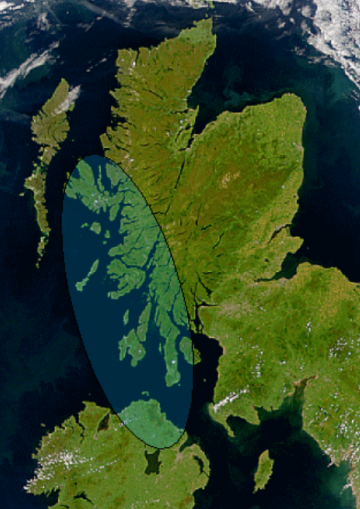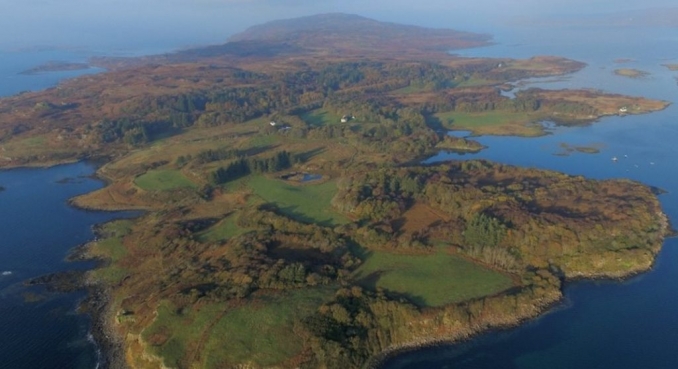Proposals for the Scottish island of Ulva to be brought into community ownership
Ulva (Scottish Gaelic: Ulbha) is a 4,500-acre (seven-sq-mile) island in the Inner Hebrides of Scotland, off the west coast of Mull. The island has been populated since the Mesolithic period and has a number of Neolithic remains. There are some dolmens and standing stones on the island dating back to 1500BC. Archeologists from Edinburgh University researching remains in the island's large Livingstone Cave indicate people lived here from as far back as 5,650BC. The island was part of the old Gaelic overkingdom of Dál Riata that included parts of western Scotland and northeastern Ireland, which reached its height in the late 6th–early 7th centuries. However, the islands name comes from Viking influences. It was part of the Norse Kingdom of the Isles comprising the Hebrides, the islands of the Firth of Clyde and the Isle of Man from the 9th to the 13th centuries AD. Its name is thought to derive from the Norse Ulv-øy/Ulfrsey, Old Norse for 'wolf island' or 'Ulfr's island'.
The Isle of Ulva was recently put up for sale and now Scotland's First Minister, Nicola Sturgeon has announced that a community group has been granted the right to register an interest in buying the island. The North West Mull Community Trust wants to buy Ulva under The Land Reform (Scotland) Act 2003, which gives communities the right to register and then go on to buy land and assets under certain conditions. At one time the island had over 800 residents and The Trust has ambitious plans to to increase Ulva's population which has fallen dramatically and to expand upon the potential offered by its rich history and wildlife. Like so many area's in this part of Scotland the island suffered during the sad era of the clearances. When crofters were cleared off the land with some going to other parts of Scotland, some to north America, Australia and New Zealand.







